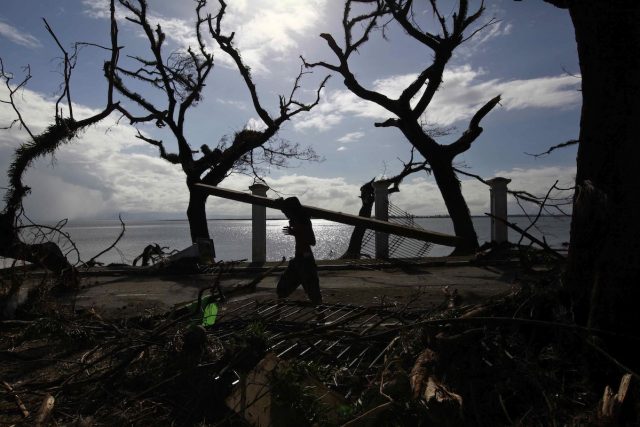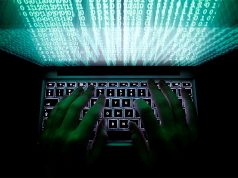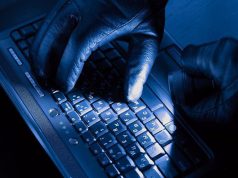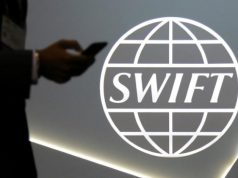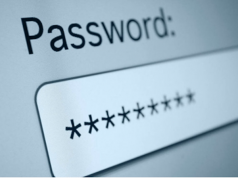MANILA – Filipinos are most concerned about identity theft, or the unauthorized access to or misuse of their personal information, and natural disasters, such as floods, typhoons, and earthquakes.
At least 93 percent of the 1,000 Filipino respondents in the 2017 Unisys Security Index, launched on Wednesday at the Makati Shangri-La, expressed concern for both issues.
There were also high levels of concern over bank card fraud, with 89 percent of Filipino respondents worried that other people would obtain or use their credit card or debit card details.
Computer and Internet security in relation to viruses, unsolicited e-mails, and hacking was a concern among 88 percent of Filipino respondents.
Filipinos are also more concerned about their security than citizens from 12 other countries covered by the survey, which involved some 13,000 adults who were interviewed via telephone in April.
This was before the WannaCry ransomware attack and the fighting between government authorities and the Maute terrorist group.
The Unisys Security Index, conducted by the global information technology services organization it was named after, gauges consumers’ attitudes on issues related to national, personal, financial, and Internet security.
Natural disasters also top concern
According to John Kendall, director of border and national security programs at Unisys, this year was the first time Filipinos were polled since the survey was first conducted in 2007.
The Philippines had the highest level of concern about security issues, followed by four other developing countries: Mexico, Malaysia, Brazil, and Argentina, in that order.
The United States, Colombia, Australia, New Zealand, Belgium, United Kingdom, Germany, and Netherlands followed.
The Philippines was the only country where natural disasters ranked in its top two concerns.
The Unisys Security Index also showed how much Filipinos supported data collection through the Internet of Things, the use of wearable biometrics, and advanced analytics of their personal data.
Support for data collection via the Internet of Things:
• An emergency button on a smartphone or smartwatch to send your location at that time to police if you need help: 94 percent support
• Sensors in luggage to advise if it has been unloaded and what carousel it can be collected from: 91 percent support
• Medical devices like pacemakers or blood sugar sensors that transmit significant changes to your doctor: 84 percent support
• Health insurers tracking fitness activity via wearable monitors to determine premiums or reward behavior: 54 percent support
• An app on your smartwatch from your bank or credit card company allowing payments from the device: 50 percent support
• Police accessing data from your wearable fitness monitor at their discretion to determine if you were in a given location at a certain time: 42 percent support
Kendall believed the results showed that acceptance of the Internet of Things depended on its application.
The top barriers to sharing personal information via the Internet of Things were the following, he added: there was not a compelling enough reason to do so; people did not want a particular organization to have that data; and they were worried about the security of the data that was transmitted.
Support for wearable biometrics:
• Police or border security staff wearing facial recognition body cameras to identify known criminals or terrorists: 91 percent support
• Medical devices like pacemakers or blood sugar sensors that transmit significant changes to your doctor: 84 percent support
• Airline staff wearing facial recognition glasses to confirm passengers’ identities as they board the aircraft: 80 percent support
• Fingerprint scans on smartwatches to control access to information the devices have captured: 79 percent support
• Fingerprint scans on smartwatches to authorize payments made via the device: 71 percent support
• Fitness trackers to track employee movements and stress levels in the workplace: 70 percent support
• Facial recognition glasses to identify VIP customers: 54 percent support
“What we see is where it’s safety or personal benefits involved, people were more willing to [support wearable biometrics]. If it’s for somebody else’s benefit, so facial recognition by my bank or my retailer… people just start to worry a little bit,” Kendall explained.
Support for advanced analytics of personal data:
• Border security officers in airports analyzing the travel history of passengers to assess eligibility for fast-track border clearance: 77 percent support
• Welfare agencies accessing personal spending data from credit card records and insurance policies to verify claims: 56 percent support
• Shop assistants wearing facial recognition glasses to identify loyalty program members: 53 percent support
• Banks monitoring customer spending to offer related products: 48 percent support
• Tax office accessing personal spending data from credit card records and insurance policies to verify income tax returns: 46 percent support
Explaining these results, Kendall said, “It’s one thing for the bank to be able to use information you provided to them, but now what we’re starting to see is banks and other commercial organizations are starting to look at a broader set of data.”
He continued, “Not just information you’ve provided, but they may be able to find out on the Internet or from other organizations, as well, and they’re able to make determinations about your history and what you might do next that some people find just a little too creepy. You know more about me than I was willing to share with you, and so we’re starting to get a bit of push back from people that feel that this is really… taking data analytics too far.”
Asked by reporters if Filipinos were paranoid, Engr. Allan Cabanlong, Assistant Secretary for Cybersecurity and Enabling Technologies at the Department of Information and Communications Technology (DICT) replied, “We should be paranoid.”
He stressed that social media users tended to give out too much information about themselves, and others could use such information maliciously – like one’s banking details, birthdate, and mother’s maiden name.
Each person should be responsible for his or her own security, Cabanlong added.

